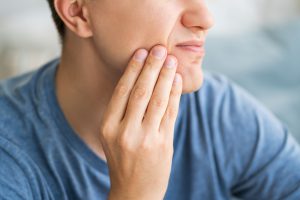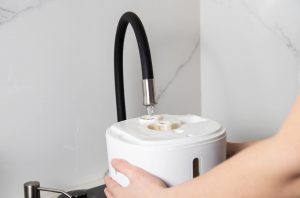Everyone has their own unique combination of allergic triggers and not all of them are obvious. You may be sensitized to several allergen sources, but your sensitization may not be enough to trigger symptoms when you are exposed to only one of them. But when you encounter multiple substances you’re allergic to at the same time, they can add up, and you may start experiencing symptoms, such as itchy eyes or a runny nose.
Determining if you’re allergic and identifying your allergic triggers can help you stay below your symptom threshold—the point where you start experiencing allergy symptoms.
Most people with allergies—up to 80 percent—are allergic to multiple allergens. And for some of these people; symptoms may appear only when they encounter two or more things they’re allergic to at the same time.
Minimizing your exposure to your allergic triggers may help lessen or eliminate your symptoms. For example:
• You could have a low-level allergy to dust mites, mold, and grass pollen. During large parts of the year, you’re exposed to dust mites and mold but may have little to no symptoms.
• But in the spring, when pollen is in the air, you may experience symptoms. You then might think that you have only a pollen allergy. But without a test you won’t know for sure.
Your best defense against your allergic symptoms is to know what’s causing them and to avoid those triggers. This doesn’t necessarily mean you’ll have to cut everything you’re allergic to out of your life. You’ll just have to reduce your exposure enough to get below your symptom threshold—the level where you start to experience symptoms.
One of the best ways to find out what’s causing your allergic symptoms is to get tested. There are several different options for allergy testing, including blood tests, skin-prick tests, food challenge tests, and allergy provocation tests. Together with your healthcare provider, you can decide which test is best for you. After your elected allergy test is performed, the results are reviewed by your healthcare provider alongside your medical history to help establish an accurate diagnosis.
To schedule an allergy test at Jamaica Hospital Medical Center, please call 718-206-7001.
All content of this newsletter is intended for general information purposes only and is not intended or implied to be a substitute for professional medical advice, diagnosis or treatment. Please consult a medical professional before adopting any of the suggestions on this page. You must never disregard professional medical advice or delay seeking medical treatment based upon any content of this newsletter. PROMPTLY CONSULT YOUR PHYSICIAN OR CALL 911 IF YOU BELIEVE YOU HAVE A MEDICAL EMERGENCY.










